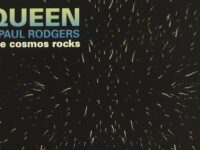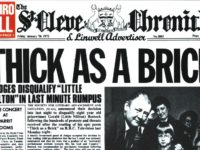“You can be big-headed and say, ‘Yeah, we’re gonna last ten years.’ But as soon as you’ve said that you think, ‘We’re lucky if we last three months,’ you know.” – John Lennon, August 1963 BBC interview
Of course, back in the day nobody really had any idea how long a career could go in the rock ‘n’ roll biz: at the time of John Lennon’s interview, the genre was arguably not even 10 years old.
As it turns out, a career in popular music can last a lifetime, and can even cross the generational gap that often divide tomorrow’s next big thing from yesterday’s news. But it’s really hard to sustain a long career with any kind of consistency, and so it’s often the case that artists who have been in the public eye for decades sometimes find that chunks of their back catalogs have become forgotten in the collective memory – overshadowed, as it were, by their more popular releases.
That’s pretty much a given. What’s interesting though, is just where these historical omissions occur in the overall arc of any given artist’s story.
For instance, take mega-selling superstars, Journey. They didn’t hit their commercial prime until Steve Perry became their lead vocalist in 1978, so it’s easy to forget that before the Perry era, they had already begun their (ahem) journey by releasing three albums with keyboardist Gregg Rolie doing most of the lead singing.
The music contained on the albums Journey (1975), Look into the Future (1976), and Next (1977) is often described as prog rock, hard rock or even jazz fusion. Whatever it is, it didn’t sound much like “Don’t Stop Believin’” or any of their later radio successes. Instead, the band focused on instrumental showmanship and longer song formats that provided room to stretch out and improvise. That’s not such a bad thing, but it’s hard to argue with the benefits that came with a shift in direction.
On the other hand, it’s possible for an artist to find commercial success harder to come by after a relatively successful early start. Such could be argued was the case for Jethro Tull, who saw their commercial fortunes peak in the 1970s. They continued to be a working band into the 1980s and beyond, but that decade saw a mishmash of releases and styles that made it hard for a casual fan of the group to keep up.
The initial release of the decade, an album simply titled A from 1980, was originally slated to be a solo effort from leader Ian Anderson. It ended up being credited to Jethro Tull, which was interesting as almost all the band’s members differed from those who appeared on the previous album. Then, there was a return to their previous folk-rock approach on 1982’s The Broadsword and the Beast, except with synthesizers thrown into the mix. Soon followed Under Wraps (1984), done with a drum machine.
The decade ended with two more or less mainstream rock releases, Crest of a Knave (1987) and Rock Island (1989), the former mysteriously winning the freshly minted Grammy category best hard rock / metal performance over other acts such as Metallica and AC/DC.
There’s no question that these albums covered a lot of different styles and approaches, and that fact itself goes a long way towards explaining why songs that come from this era aren’t usually familiar to the average music fan. And that’s too bad, because there’s some decent material here if one cares to go looking for it.
Finally, there are artists with overlooked material hiding in plain sight. A great example is Paul Rodgers, usually remembered as the front man for classic-rock powerhouses Free (“All Right Now”) and Bad Company (“Can’t Get Enough”). He’s also known for teaming up with Led Zeppelin’s Jimmy Page in the Firm, Faces’ drummer Kenney Jones in The Law, and Brian May and Roger Taylor in Queen + Paul Rodgers.
Rodgers has been gifted with a great voice, so he’s also made numerous releases singing blues classics, covers, or hits from his old bands, the most recent being 2018’s Free Spirit, a CD/DVD performance of live renditions of old Free tunes.
But interestingly, over the course of his career he’s also released three solo albums of original material. Cut Loose (1983), which came out after the breakup of Bad Company, was a true solo album, with Rodgers playing all the instruments and singing all the vocals. On the other two albums, Now (1997) and Electric (2000), he assembled a core of solid musicians to power his typical blues rock songwriting, and the material fit in easily with the rest of his more familiar output.
Why these albums didn’t generate more interest is anybody’s guess, but fans of Paul Rodgers’ better-known work ought to track these down if they haven’t heard them already. After all, if you’re interested in the long game, you don’t want to miss any of the action.
- How David Bowie’s ‘The Next Day’ Stripped Away All of the Artifice - March 15, 2023
- Why Deep Purple’s ‘Who Do We Think We Are?’ Deserves Another Listen - January 11, 2023
- In Defense of the Often-Overlooked Mott the Hoople - November 10, 2022




